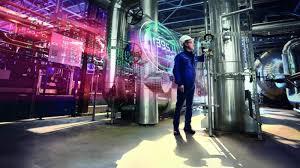Introduction:
Process Automation and Instrumentation Market Size is expected to grow USD 5.9 billion by 2030, at (CAGR) of 6.5% during the forecast period (2023 - 2030).
In today's rapidly evolving industrial landscape, process automation instrumentation has emerged as a cornerstone for enhancing efficiency, productivity, and operational excellence across various sectors. From manufacturing and oil & gas to pharmaceuticals and utilities, process automation instrumentation plays a pivotal role in optimizing processes, improving quality control, and ensuring regulatory compliance. The market for process automation instrumentation is witnessing robust growth driven by advancements in sensor technology, adoption of Industrial Internet of Things (IIoT), and increasing demand for smart manufacturing solutions. In this article, we delve into the dynamics of the process automation instrumentation market, examining key trends, drivers, and future prospects.
Understanding Process Automation Instrumentation:
Process automation instrumentation refers to a range of devices and systems used to monitor, control, and optimize industrial processes. These instruments encompass various sensors, actuators, transmitters, controllers, and software solutions designed to measure, analyze, and regulate parameters such as temperature, pressure, flow, level, and composition. Process automation instrumentation enables real-time data acquisition, decision-making, and response to dynamic process conditions, thereby enhancing operational efficiency, reliability, and safety across industrial facilities.
Market Trends Driving Growth:
- Adoption of Industry 4.0 and Smart Manufacturing: The implementation of Industry 4.0 principles, including connectivity, automation, and data exchange, is driving the demand for advanced process automation instrumentation. Smart manufacturing solutions leverage IoT-enabled sensors, cloud computing, and data analytics to optimize production processes, minimize downtime, and enable predictive maintenance.
- Integration of IIoT and Big Data Analytics: The convergence of Industrial Internet of Things (IIoT) and big data analytics is revolutionizing process automation. IIoT-enabled sensors and devices capture vast amounts of data from industrial assets, which can be analyzed in real-time to derive actionable insights for process optimization, predictive maintenance, and resource allocation.
- Focus on Operational Efficiency and Cost Reduction: Industries are under pressure to improve operational efficiency, reduce energy consumption, and optimize resource utilization to remain competitive in the global market. Process automation instrumentation enables automation of repetitive tasks, optimization of process parameters, and reduction of waste, leading to cost savings and improved profitability.
- Shift Towards Remote Monitoring and Control: The COVID-19 pandemic has accelerated the adoption of remote monitoring and control solutions across industries. Process automation instrumentation facilitates remote access to critical process data, enabling operators and engineers to monitor and manage industrial processes from anywhere, thereby enhancing operational resilience and continuity.
Growth Drivers:
- Regulatory Compliance and Safety Standards: Stringent regulations and safety standards mandate the implementation of process automation instrumentation to ensure compliance with environmental, health, and safety regulations. Industries such as pharmaceuticals, chemicals, and food & beverage rely on instrumentation solutions to monitor process parameters and maintain product quality and integrity.
- Demand for Real-Time Process Optimization: Industries are increasingly seeking to optimize production processes in real-time to meet changing market demands, improve product quality, and reduce time-to-market. Process automation instrumentation enables continuous monitoring and adjustment of process parameters to achieve desired outcomes and maximize efficiency.
- Emergence of Digital Twins and Simulation Technologies: Digital twins and simulation technologies are gaining prominence in process industries as tools for virtual modeling, testing, and optimization of industrial processes. Process automation instrumentation provides the data and feedback necessary to develop accurate digital twins, enabling predictive modeling and scenario analysis for process optimization and risk mitigation.
Get a free sample @ https://www.marketresearchfuture.com/sample_request/5511
Key Companies in the Process Automation and Instrumentation market includes:
- ABB Ltd (Switzerland)
- General Electric Co. (U.S)
- Mitsubishi Electric Corporation (Japan)
- Rockwell Automation Inc. (U.S)
- Emerson Electric Co. (U.S)
- Siemens AG (Germany)
- Yokogawa Electric Corporation (Japan)
- Metso Corporation (Finland)
- Schnieder Electric SE (France), among others
Future Outlook:
The process automation instrumentation market is poised for continued growth and innovation as industries embrace digital transformation and automation to enhance competitiveness and sustainability. Key areas of focus include the development of advanced sensor technologies, integration of AI and machine learning for predictive analytics, and expansion of IIoT connectivity and interoperability. Furthermore, the evolution of autonomous systems, collaborative robotics, and cyber-physical systems will drive further adoption of process automation instrumentation across diverse industries and applications.
Read more articles –
Magneto resistive RAM (MRAM) Market


